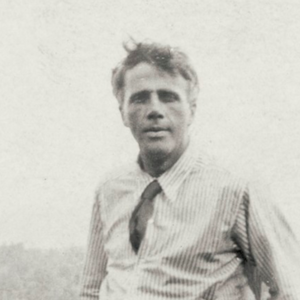
Place for a Third Robert Frost
На этой странице вы найдете полный текст песни "Place for a Third" от Robert Frost. Lyrxo предлагает вам самый полный и точный текст этой композиции без лишних отвлекающих факторов. Узнайте все куплеты и припев, чтобы лучше понять любимую песню и насладиться ею в полной мере. Идеально для фанатов и всех, кто ценит качественную музыку.

Nothing to say to all those marriages!
She had made three herself to three of his.
The score was even for them, three to three.
But come to die she found she cared so much:
She thought of children in a burial row;
Three children in a burial row were sad.
One man's three women in a burial row
Somehow made her impatient with the man.
And so she said to Laban, "You have done
A good deal right; don't do the last thing wrong.
Don't make me lie with those two other women."
Laban said, No, he would not make her lie
With anyone but that she had a mind to,
If that was how she felt, of course, he said.
She went her way. But Laban having caught
This glimpse of lingering person in Eliza,
And anxious to make all he could of it
With something he remembered in himself,
Tried to think how he could exceed his promise,
And give good measure to the dead, though thankless.
If that was how she felt, he kept repeating.
His first thought under pressure was a grave
In a new boughten grave plot by herself,
Under he didn't care how great a stone:
He'd sell a yoke of steers to pay for it.
And weren't there special cemetery flowers,
That, once grief sets to growing, grief may rest;
The flowers will go on with grief awhile,
And no one seem neglecting or neglected?
A prudent grief will not despise such aids.
He thought of evergreen and everlasting.
And then he had a thought worth many of these.
Somewhere must be the grave of the young boy
Who married her for playmate more than helpmate,
And sometimes laughed at what it was between them.
How would she like to sleep her last with him?
Where was his grave? Did Laban know his name?
She had made three herself to three of his.
The score was even for them, three to three.
But come to die she found she cared so much:
She thought of children in a burial row;
Three children in a burial row were sad.
One man's three women in a burial row
Somehow made her impatient with the man.
And so she said to Laban, "You have done
A good deal right; don't do the last thing wrong.
Don't make me lie with those two other women."
Laban said, No, he would not make her lie
With anyone but that she had a mind to,
If that was how she felt, of course, he said.
She went her way. But Laban having caught
This glimpse of lingering person in Eliza,
And anxious to make all he could of it
With something he remembered in himself,
Tried to think how he could exceed his promise,
And give good measure to the dead, though thankless.
If that was how she felt, he kept repeating.
His first thought under pressure was a grave
In a new boughten grave plot by herself,
Under he didn't care how great a stone:
He'd sell a yoke of steers to pay for it.
And weren't there special cemetery flowers,
That, once grief sets to growing, grief may rest;
The flowers will go on with grief awhile,
And no one seem neglecting or neglected?
A prudent grief will not despise such aids.
He thought of evergreen and everlasting.
And then he had a thought worth many of these.
Somewhere must be the grave of the young boy
Who married her for playmate more than helpmate,
And sometimes laughed at what it was between them.
How would she like to sleep her last with him?
Where was his grave? Did Laban know his name?
Комментарии (0)
Минимальная длина комментария — 50 символов.












